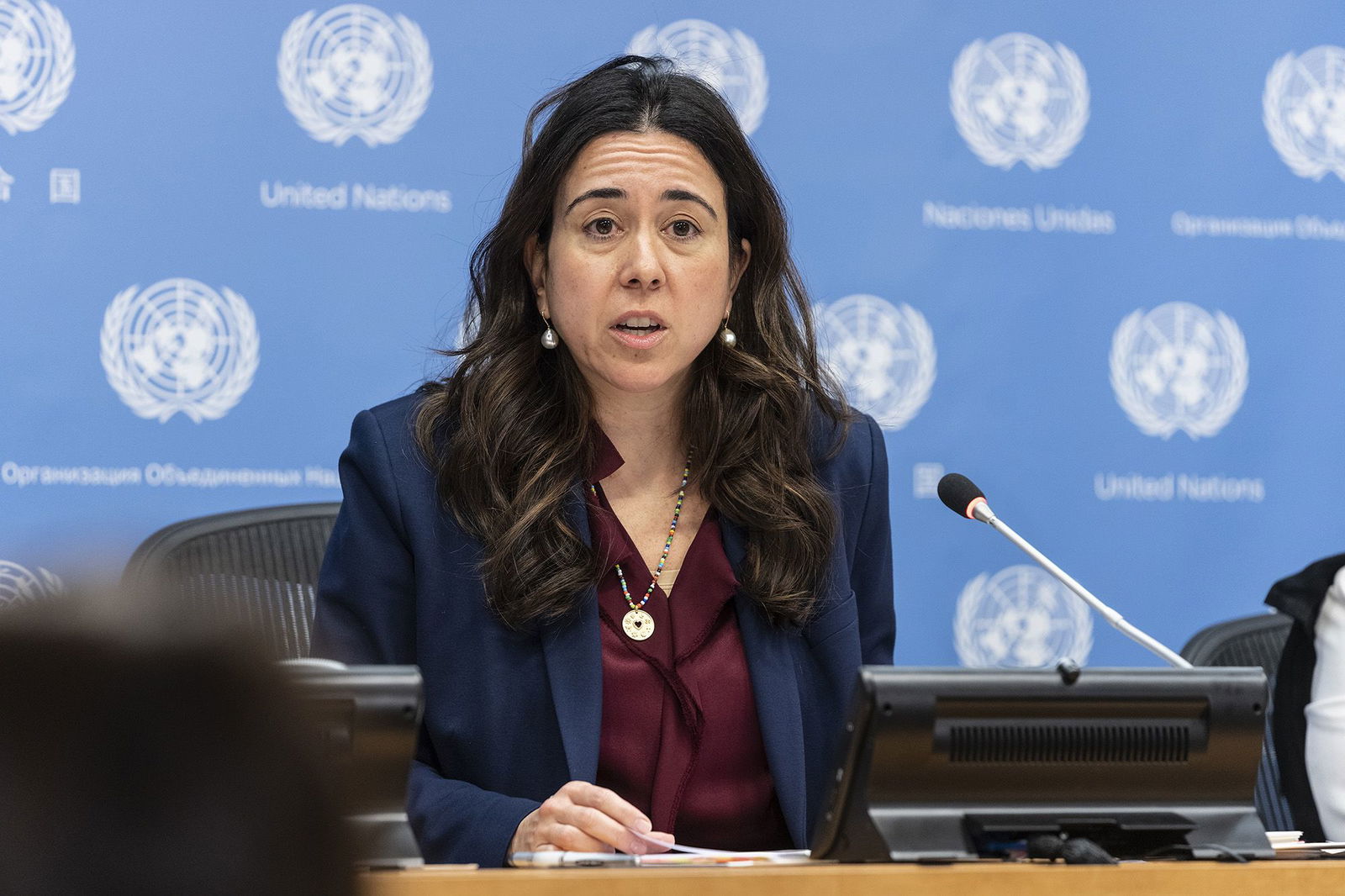UAE warns Israel’s West Bank annexation would cross ‘red line’ and end regional integration efforts

Former permanent representative of the UAE to the UN Lana Nusseibeh
By Mostafa Salem, CNN
(CNN) — Israel’s annexation of any part of the occupied West Bank would be a “red line” that would “end the pursuit of regional integration,” warned the United Arab Emirates, the main signatory of the landmark agreement that saw Israel normalize relations with three Arab nations.
“Annexation in the West Bank would constitute a red line for the UAE,” Lana Nusseibeh, Assistant Minister for Political Affairs at the UAE’s foreign ministry, said in a statement. “It would severely undermine the vision and spirit of (the Abraham) Accords, end the pursuit of regional integration, and would alter the widely-shared consensus on what the trajectory of this conflict should be – two states living side by side in peace, prosperity, and security.”
In 2020, the UAE became the first Arab country in 26 years to normalize relations with Israel under the Abraham Accords, with Bahrain and Morocco following soon after. Abu Dhabi has since deepened trade, defense and tourism ties with Israel and the government of Israeli Prime Minister Benjamin Netanyahu has made it a priority to expand the pact to other Arab nations, particularly Saudi Arabia.
While the UAE has previously criticized Israel over its conduct in the Gaza war and the West Bank, its latest warning – delivered just ahead of the fifth anniversary of the Abraham Accords – marks the strongest rebuke yet from Abu Dhabi. It also raises fresh doubts about the durability of the normalization agreement, one of US President Donald Trump’s signature foreign policy achievements during his first term.
The UAE has maintained relations with Israel over the course of the Gaza war and used those ties to coordinate air drops of aid into the war-ravaged territory, seeing the pact as beneficial to Palestinians too.
“From the very beginning, we viewed the Accords as a way to enable our continued support for the Palestinian people and their legitimate aspiration for an independent state. That was our position in 2020, and it remains our position today,” Nusseibeh, who had previously served as the UAE ambassador to the United Nations, said.
‘Bury the idea of a Palestinian state’
In 2020, the UAE conditioned normalization on Israel suspending plans to annex parts of the West Bank and framed the outcome as an achievement for Abu Dhabi’s efforts toward Palestinian statehood.
Israel captured the West Bank from Jordan in the 1967 war and began establishing Jewish settlements there soon after. Around 3 million Palestinians live in the West Bank and the Palestinians want the territory, along with occupied East Jerusalem and Gaza, as part of a future state, a position supported by most of the international community.
“The proposals to annex parts of the West Bank, reportedly under discussion in the Israeli government, is part of an effort that would, in the words of an Israeli minister, ‘bury the idea of a Palestinian state,’” she added, in an apparent reference to far-right Israeli Finance Minister Bezalel Smotrich, who made the comments recently.
Netanyahu is set to convene a meeting with top cabinet ministers on Thursday to discuss Israel’s retaliation for an expected wave of Palestinian statehood recognition by Western nations this month, two Israeli officials told CNN on Tuesday.
France, Australia, Canada, Portugal, the United Kingdom and other Western nations have announced plans to recognize Palestinian statehood at the United Nations General Assembly this month, joining more than 140 nations that already do so.
The Israeli officials who spoke to CNN said Netanyahu is considering various scales and levels of annexation options, ranging from a limited takeover of several Jewish settlements to a broader approach calling for annexation of Area C, which comprises 60% of the territory.
One of the main options being considered is annexation of the Jordan Valley – a strip of land on the eastern edge of the West Bank that runs along the Jordan River. The officials said there was a broader Israeli public consensus in favor of such a proposal, adding that Israel’s need to use it as a security perimeter would be easier to sell to the international community – and, most importantly, Washington.
Netanyahu’s far-right political allies, ministers Smotrich and Itamar Ben Gvir, as well as the settler leadership, oppose the idea of partial annexation involving specific strips or settlement blocks, and are instead pushing for the maximalist approach – applying Israeli sovereignty over all territory not inhabited by Palestinians. The move would allow Israel to encircle Palestinian population centers, further undermining the viability of a contiguous Palestinian state.
“We call on the Israeli government to suspend these plans. Extremists, of any kind, cannot be allowed to dictate the region’s trajectory. Peace requires courage, persistence, and a refusal to let violence define our choices,” Nusseibeh said.
The-CNN-Wire
™ & © 2025 Cable News Network, Inc., a Warner Bros. Discovery Company. All rights reserved.


